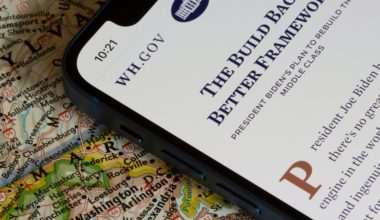Building Back Better, with Infrastructure … but Fewer International Students

DC SHUTTLE
House Passes Build Back Better Act.
The U.S. House of Representatives passed the Build Back Better Act by a vote of 220 to 213. The Congressional Budget Office (CBO) completed scoring the legislation and concluded that the net increase in deficit totaled $454.1 billion over the 2022-to-2031 period. This deficit would be a result of direct spending of $457.9 billion and an increase in revenue of $3.8 billion. “The CBO’s estimate confirms that we can pay for these investments by making corporations and the wealthy pay their fair share in taxes. In fact, the Joint Committee on Taxation found that the entire package is fully paid for and would reduce the deficit over the long term,” stated Education and Labor Committee Chair Bobby Scott (D-SC). “Build Back Better Act makes historic investments in lowering costs for working families and helping Americans secure good-paying jobs.” The bill will give higher education over $20 billion to increase accessibility, funding and expand programs to reach more students. The bill outlines programs that will allow students access to different programs beyond high school, which include:
Universal preschool for 3- and 4-year-olds, serving around 6 million students
Increasing the maximum federal Pell Grant by $550 for both public and private nonprofit schools and expanding eligibility for the grant
Expanding the federal student aid eligibility for DACA, TPS and DED status
Providing a retention and completion grant to help student succeed in school and in their careers
Increasing aid for institutions that identify as HBCUs, TCUs or MSIs and giving them extra funding for research and infrastructure.
Read more in the House Committee on Education and Labor report, the Washington Post, the New York Times, and the U.S. Secretary of Education’s statement.
Infrastructure Bill Includes Funding for Broadband. President Joe Biden signed the Infrastructure and Jobs Act, including funding targeted to broadband infrastructure that could help students. This legislation intends to help provide lower prices for internet services to ensure access to all Americans. The bipartisan bill allows for K-12 schools in underserved regions to have the necessary tools to connect millions of students and help close the “homework gap.” It includes $65 billion for improving broadband access, including to rural areas. Read more at Education Week and Government Technology.
International Student Enrollment Declines. New data from the Institute of International Education’s annual Open Doors report, showed a decrease of 15% in international student enrollment for the 2020-21 school year. Up until this year, the numbers had been steadily increasing for the past 70 years. The decrease, according to the Washington Post, is a direct result of the pandemic and border closings implemented in order to stop global mobility. International students have been a source of revenue for many colleges and also to the economy as a whole, and this drop has significantly impacted the economy, according to NAFSA.
Multiple higher education councils published a letter expressing the importance for federal policy to support colleges and universities as they try to prioritize bringing in international students. “It is essential that the federal government support higher education’s efforts to develop a national strategy to increase the number of international students enrolled at U.S. colleges and universities, ensuring that the nation returns to its pre-pandemic, high water mark level set in 2015 of more than 1 million international students,” stated the letter.
Read more at NPR and the Chronicle of Higher Education.
We publish the DC Shuttle each week Congress is in session featuring higher ed news from Washington collected by the New England Council, of which NEBHE is a member. This edition is drawn from the Higher Education Update in the Council’s Weekly Washington Report of Nov. 22, 2021.
For more information, please visit:
